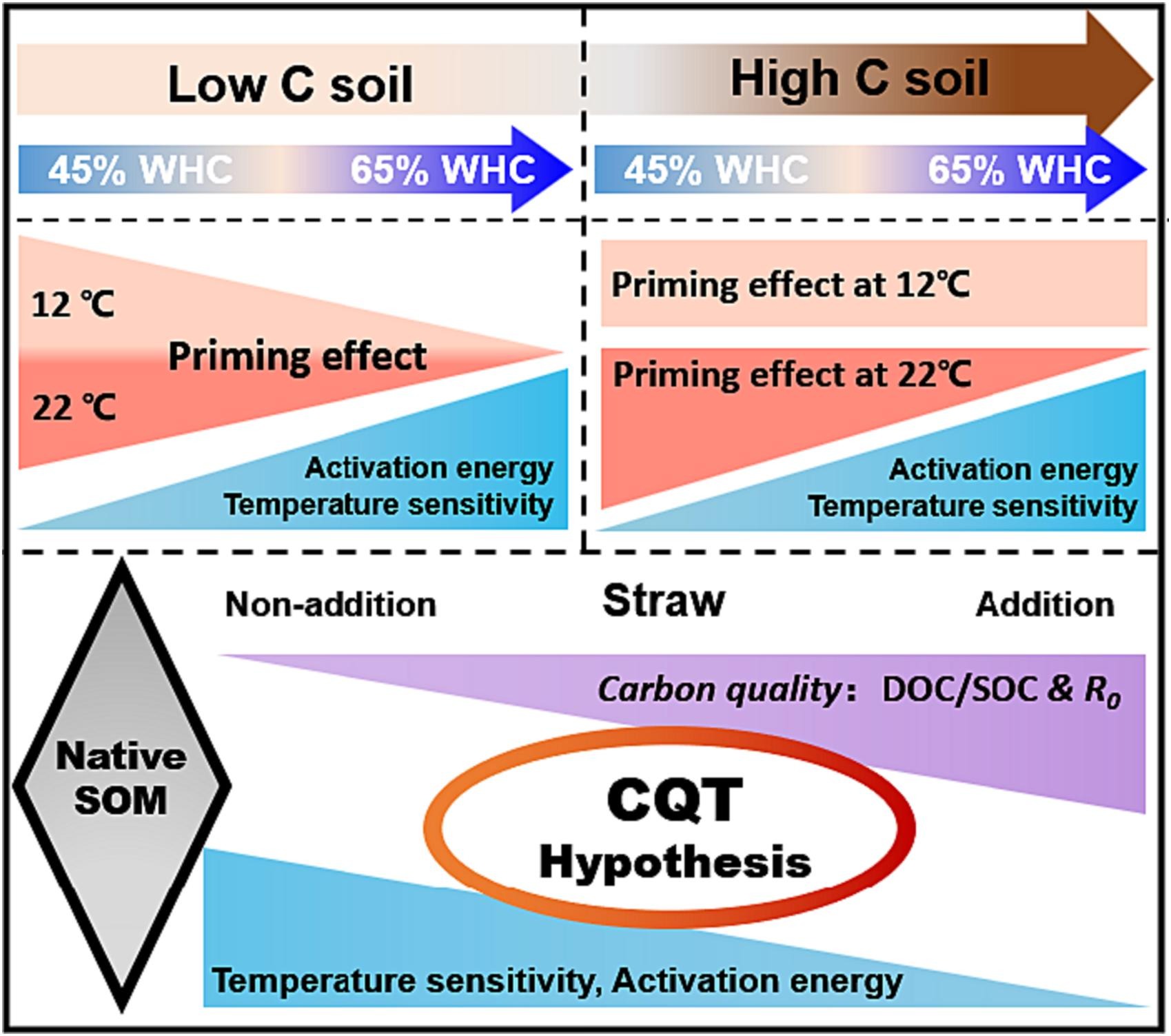
Soil organic matter (SOM) is crucial to soil health and carbon storage in agriculture. Adding crop residues to the soil increases SOM, but can also accelerate its decomposition, known as the priming effect. The temperature sensitivity (Q10) of SOM decomposition is critical and affects how the carbon cycle interacts with climate change. SOM degradation is influenced by factors such as microbes, plants, soil moisture, and temperature. Despite extensive research, it remains unclear how multiple factors, especially external organic matter inputs, affect SOM decomposition.
Prof. LI Lujun's team from the Northeast Institute of Geography and Agroecology of the Chinese Academy of Sciences focused on black soils in northeastern agricultural fields. Using microcosm-controlled experiments and 13C stable isotope tracing technology, they conducted an in-depth investigation of the effects of soil temperature (12 °C and 22 °C) and moisture (45% water holding capacity (WHC) and 65% WHC), as well as their interaction, on the priming effect and temperature sensitivity of SOM.
This work was published in Geoderma on Feb. 2.
During a 66-day incubation period, approximately 11% of the straw carbon was mineralized into CO2, accounting for 44-67% of the total emissions. Soil temperature, moisture, and carbon content, along with their interactions, influenced SOM mineralization. The addition of straw significantly increased SOM mineralization and caused a positive priming effect.
Due to the input of fresh external substances, soil microbes mineralized SOM to obtain nitrogen for growth, supporting the microbial N mining theory. Under 45% WHC and 22 °C conditions, low moisture shifted microbial growth strategies from r-strategists to K-strategists. This shift accelerated the mineralization rate of SOM, and amplified the priming effect.
Furthermore, the addition of straw significantly decreased the temperature sensitivity of SOM mineralization. The inputs of external substances accelerated SOM decomposition, increased the labile carbon content of the soil, and improved SOM quality, which is a key factor influencing SOM temperature sensitivity. Higher quality SOM decomposition typically requires lower activation energy, resulting in lower Q10 values. This finding is consistent with the Arrhenius equation and supports the carbon quality temperature hypothesis.
The researchers also showed that lower soil moisture reduced the Q10 values. Reduced moisture limited solute diffusion in soil water films and microbial activity, suggesting that drought conditions could mitigate the temperature sensitivity of SOM mineralization by reducing Q10 values.
These results enhance our understanding of how soil C dynamics respond to external organic matter inputs in the context of climate change.

Conceptual diagram of soil organic matter turnover. (Image by LI Lujun)

86-10-68597521 (day)
86-10-68597289 (night)

86-10-68511095 (day)
86-10-68512458 (night)

cas_en@cas.cn

52 Sanlihe Rd., Xicheng District,
Beijing, China (100864)

